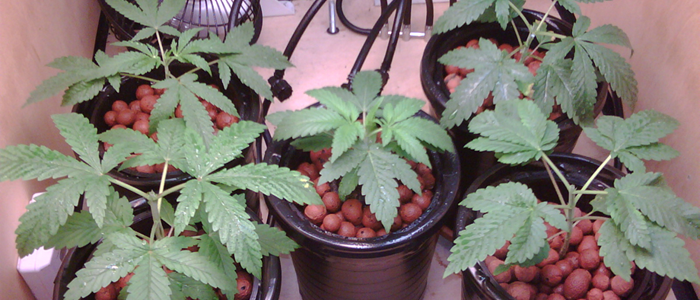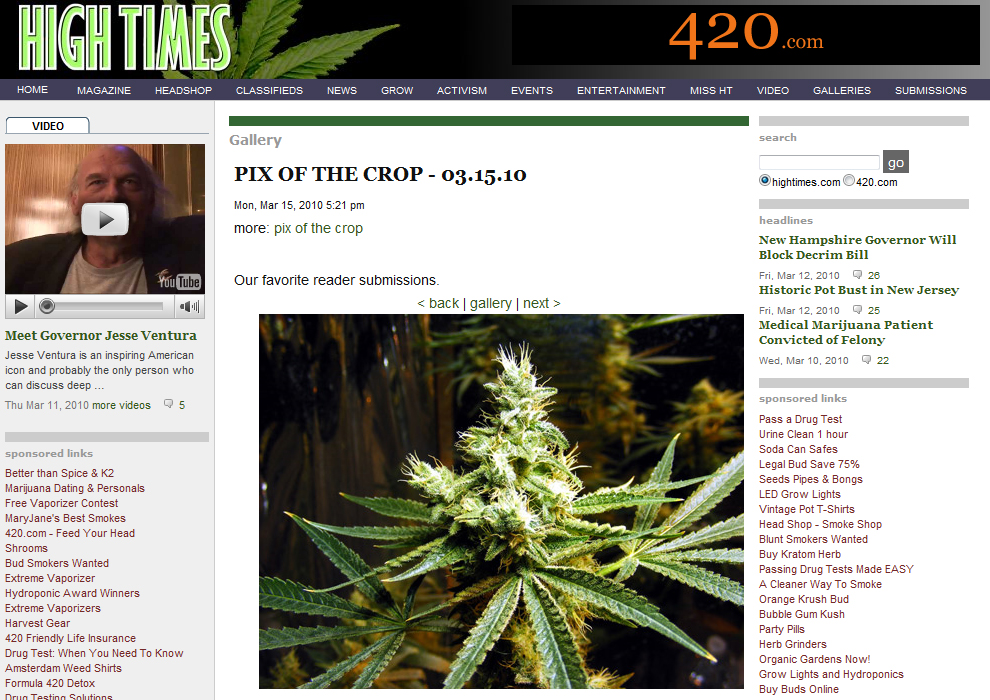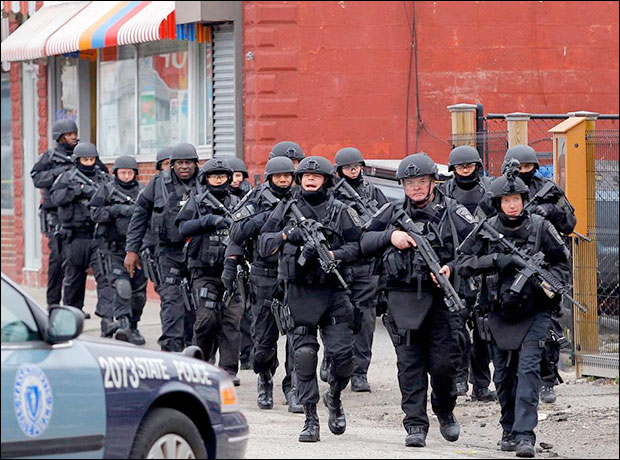If you’re looking for more on growing marijuana, start here: Anthony’s Marijuana Growing Advice. If you have any questions, feel free to email me. Make sure to send me pictures of your plants so I can see what condition they’re in. Make sure to inform me on the strain, lighting, soil/hydro, location, and any other information you may have so that I can help. Your best bet is to join a marijuana growing forum where hundreds of growers can help you with your questions.
Well folks I got a question in regards to my initial Marijuana Mondays post back in August. The commenter saw images of marijuana plants grown small scale. The first image on the left in a one-quart hydroponic grow while the image on the right is a one-ounce soil grow.
Question: How do you grow plants on a small scale?
Root Zone
First of all, to grow plants at that small scale you have to control the size of the root zone. And, if you look at the pictures you’ll notice the size of the plants in relation to the container or root zone area. Notice the image on the left in relation to the hydrogen peroxide bottle in the background. While it’s small, it’s still bigger compared to the image on the right. If you ever see grow operation busts in the news, you’ll see the plants grown in buckets, usually five gallons. They’re upwards of six feet in height. Grow a marijuana plant outdoors with the right climate, you can’t easily get plants at nine feet and I’ve seen images of a tw0-story tall marijuana tree.
Genetics
Scientifically, marijuana’s name is Cannabis Sativa. However, that tends to be misleading especially with marijuana growers and breeders. There is also Indica and Ruderalis. You can tell the difference because the plants grow differently.
- Sativas tend to grow tall and lanky (long internodal spacing) with thin-bladed leaves. They also offer a more cerebral or “up” high.
- Indicas are a bit shorter and stubby (tighter internodal spacing) with fat-bladed leaves. They are more common and offer more of a body high, known as the infamous “couch lock”.
- Ruderalis tends to be a funny situation. These plants grow small by nature.
Although the root zone will control the size of the plant, depending on your space limitations, you’ll want to know what you’re working with so you can manage the plant accordingly.
Science and Breeding
This is why scientifically speaking, it’s ass backwards to consider all marijuana under one species name. For example, just because a tiger and a lion are part of the same cat family doesn’t mean they’re the same species. It’s important to know for breeders because when they cross breed the marijuana strains, they’ll be looking for specific characteristics to promote.For example, a marijuana breeder may want to cross a physically shorter indica with the potency of a sativa. It may take many generations to get what the breeder wants. So, it’s a good thing the plant can mature in under six months.
Plant Management: Topping and Low Stress Training (LST)
As the plant grows, you use certain techniques such as topping and training.
- In topping the plant, you simply cut the stem at the node. Shoots start to form at the internode effectively creating two stems instead of just one.
- Training the plant is a technique used to get the plant into different shapes much like small bonzai trees and topiaries. You would basically tie the stem or branches in such a way that the plant is forced, or trained, to grow in a new direction.
As the plant grows, you tie it down in other spots to maintain the shape. Stressing also has other advantages and disadvantages. If you stress the plant too much, you may “hermie”, or cause the plant to grow male and female parts like a hermaphrodite, or just kill the plant.
Note: The image in this section is from a tutorial on LST @ International Cannagraphic Magazine Forums [link]
Light Control
A plant’s growth phases are controlled by the amount of light it gets in a 24 hour period. It’s related directly to the Spring, Summer, and Fall seasons in which there’s plenty of sun light in the beginning of Spring and through Summer and less light in the fall going into Winter. Indoor growers have to do their best to mimic mother nature’s conditions. So, a baby marijuana plant would need the increased light that Spring and Summer offer. Technically, you could keep that plant in it’s vegetative stage for years since you can control those conditions.
Normally, growers spend a few weeks in the “Spring and Summer” or vegetative phase to get big growth. However, if you want to grow small, you don’t want a great amount of growth. So, you control the lighting such that the plant is signaled that Fall is approaching and it’s time to mature. The typical vegetative phase lighting regimen requires 18 hours of light and six hours (18/6)of dark. Some growers just go for a straight 24 hours. The Fall or flowering phase is signaled when the plant is getting 12 hours of light and 12 hours of dark (12/12). So, if growing from seed or clone, simply start the plant in that Fall phase at 12/12.
Conclusion
In the first pair of images, the plants are kept small simply by controlling the root zone. Other problems can arise from this technique such as root bounding which may cause the plant to stop growing. It will require you to learn root pruning. But, there are other techniques that can help you keep the plant within the confines of the space you provide. It may seem difficult or overwhelming, but you can get the hang of it quickly.









For sure! I did an outdoor grow and after 2 months mine was about 8 inches tall, the little babies take a while to start growing like crazy. But around 1month to 6weeks they do start to take off